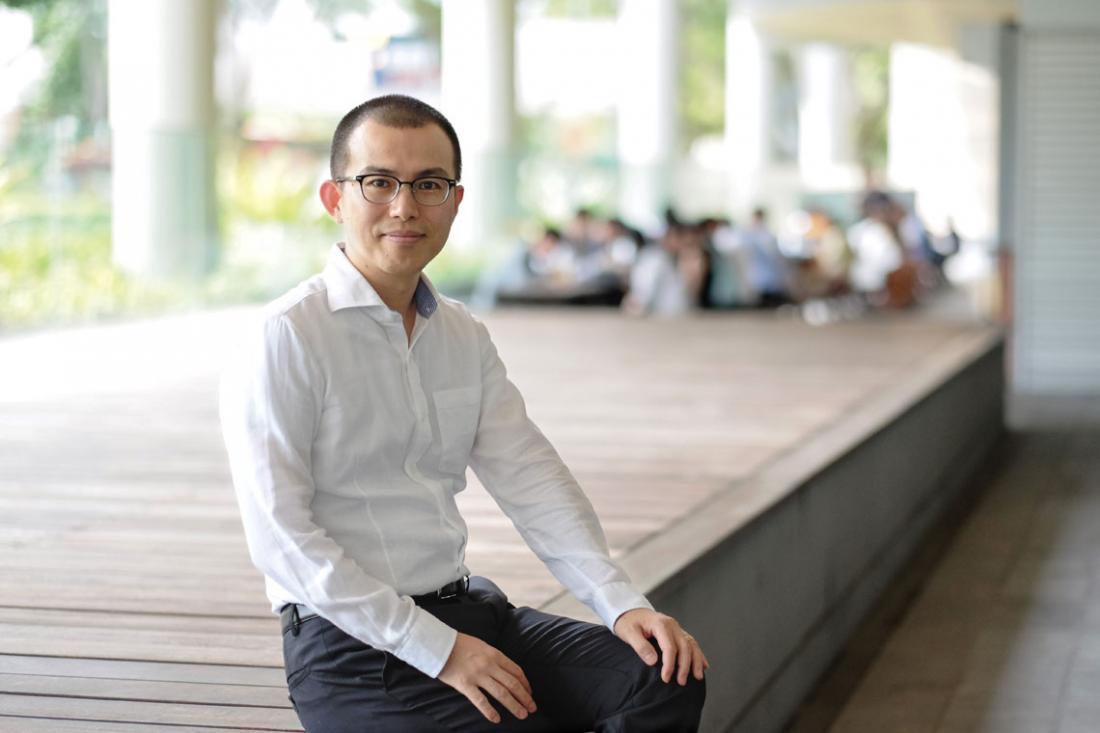Singapore Management University Assistant Professor Hiro Saito
SMU Office of Research – Most modern societies today are structured into two distinct classes: the government or state, and the citizenry. In the course of their interactions, a third player often emerges – Intermediaries, which often play a critical role as mediators between the state and the citizenry. In some cases they may be civil organisations or activist groups, and in other cases they may be agents of technical knowledge—experts.
It is these experts that Assistant Professor Hiro Saito, from the Singapore Management University (SMU) School of Social Sciences, has chosen to focus his research on. Identifying himself as a “culturally-oriented political sociologist”, Professor Saito has sought to examine how the state and civil society mobilises expert knowledge to shape and influence public policy.
Can experts contribute to social debate?
An encounter with East Asia’s “extremely complex and emotionally-charged history” during his research into the politics of war commemoration first piqued Professor Saito interest in the role of experts in politics.
In the book, The History Problem: The Politics of War Commemoration in East Asia, Professor Saito narrates the intense controversies between Japan and two of its most important neighbours, South Korea and China, and details how the furore felt in the three nations arose because of disagreements over the commemorations of World War II. Emotions were intensified as a result of nationalist tributes that focussed on what happened to their citizens, without sufficient regard to the sentiment of others.
He also reveals in the book pages the emergence of a new breed of cosmopolitan commemoration that focuses on humanity rather than nationality as a frame of reference – one that is led by a transnational network of advocacy Non-Governmental Organisations (NGOs), victims of Japan’s past transgressions, historians and educators.
In the process of researching and authoring this book, Professor Saito recognised the unique status of historians in politics. “Even though historians can engage in advocacy activities and behave like any other political actors in the history problem, they mostly act as the ‘disinterested others’ who provide historical materials for other political actors to articulate their commemorative positions,” he says.
In theory, Professor Saito believes that historians have the potential to change the trajectory of East Asia’s history problem by rejecting nationalist commemorations. In reality, however, his studies have shown that historians’ influence on the government and society is severely limited. He argues that this is because historians have weak authority over non-historians, and that “historiographies can be easily brushed aside by nationalist commemorations”.
Learning in the wake of a crisis
During his study of the politics of war commemoration, a great earthquake and tsunami struck Japan in 2011, which led to the destruction of three reactors of the Fukushima Dai-chi nuclear power plant. In the wake of the fallout, experts were once again called into the picture to shape Japan’s public policy.
Sensing a strong parallel to his earlier work, Professor Saito became interested in studying how politicians and NGOs mobilised expert knowledge whilst balancing tensions arising from citizen participation in policy making. Specifically, he focused on three major policy domains: relief for victims of the nuclear disaster, restructuring of Japan’s overall energy policy, and improvements to nuclear safety regulation.
Professor Saito embarked on ethnographic fieldwork in Tokyo from September 2011 through June 2012. The fieldwork was conducted while he volunteered with Friends of the Earth Japan, an environmental NGO that served as the secretariat of e-shift, an NGO network lobbying the government to minimise the damages of the nuclear disaster and promote renewable energy. In addition to the ethnographic data he collected, he also amassed digital archive data ranging from minutes of Diet (Japanese Parliamentary) sessions, summaries of negotiations between NGOs and bureaucrats, as well as newspaper articles.
What Professor Saito discovered in his own interactions was that Japanese researchers were deeply connected to the issues of disaster governance on an emotional level. Finding that balance between academic interest and what matters to Japanese citizens is key to achieving the greatest insights, he says. Professor Saito aims to pen another book based on his ongoing research, tentatively titled Rethinking Democracy in Post-Fukushima Japan: On the Roles of Government, Experts, and Citizens in Policymaking.
The role of higher education in politics
A larger point that Professor Saito wants to bring across via his research is the role that higher education can play in strengthening citizen participation and democracy. “Higher education plays a decisive role in structuring interaction between the state and civil society because it produces expertise and distributes it to different political actors, ranging from government agencies to NGOs,” he says.
In addition, interactions between state and citizen need not be referenced solely in local settings, he says. While there may be cultural nuances in different geographies, the analyses from his case studies in Japan are universally applicable, he reasons. These ideas are being addressed in the two papers he is currently writing, titled ‘The Possibility of Global Public Sociology’ and ‘The Role of Education in Civic Epistemology’.
And while he is reluctant to call himself an expert, Professor Saito’s expertise in political sociology will help better explain the intersection between power and knowledge, and encourage other experts to contribute towards public debates and policy discussions on a larger scale.
By Eugene Wambeck



